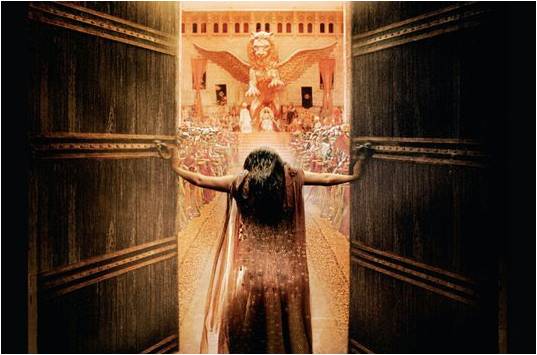This year as we celebrated Purim, something new jumped from the pages of Scripture. It has to do with the role of women in Biblical communities of faith.
In the days of Esther, the treatment of the Jewish women in a pagan kingdom was ungodly, to say the least. Imagine suggesting one of our daughters join a harem in hopes of becoming the next queen? We would be barred from the assembly of the righteous, for sure! But that is just what Mordecai did with his cousin, Hadassah, better known as Esther. Modecai was as lost in the pagan customs of the ungodly as Esther was.
Esther had one night with the king, along with all the other eligible young ladies of Persia, to determine which girl pleased the king the most. Oh Vey! How horrible for the daughters of Abraham! But then again, these Jews chose to remain in the pleasures of Babylon. Their families had not chosen not to return to the Land of Promise with Cyrus’s decree to rebuild Jerusalem. Ancient Babylon was overtaken by the Persians, and in the days of Esther, the daughters of Zion, in the Kingdom of Persia, were put to a shameful test.
Despite the unholy situation, God used Esther’s position in the Persian kingdom to save the Jews, even those who had obeyed and returned to Jerusalem. At that time, the Kingdom of Persia extended all the way to Israel. Every Jewish life was threatened by Haman’s decrees. Even though their ancestors had not returned at the opportunity offered to rebuild the ancient ruins, God had a plan for those who remained in Babylon/Persia. His plan was to save all His people from annihilation, and he used the vulnerability of one young woman to accomplish that goal.
Because of the Jewish victory over their enemies in the days of Haman [Boo], “The Jews ordained, and took upon them, and upon their seed, and upon all such as joined themselves unto them, so as it should not fail, that they would keep these two days according to their writing, and according to their appointed time every year. And that these days should be remembered and kept throughout every generation, every family, every province, and every city; and that these days of Purim should not fail from among the Jews, nor the memorial of them perish from their seed. Then Esther the queen, the daughter of Abihail, and Mordecai the Jew, wrote with all authority, to confirm this second letter of Purim. And he sent the letters unto all the Jews, to the hundred twenty and seven provinces of the kingdom of Ahasuerus, with words of peace and truth, to confirm these days of Purim in their times appointed, according as Mordecai the Jew and Esther the queen had enjoined them, and as they had decreed for themselves and for their seed, the matters of the fastings and their cry. And the decree of Esther confirmed these matters of Purim; and it was written in the book.” (Esther 9:27-32)
In what book do we have this record? The Bible! For those who think that women have no authority to give any Biblical instruction for the Body of Messiah, think again. Any man, who celebrates the Feast of Lots, Purim, is following the authority of a woman, and it is with God’s approval!
There was a change in status for the role of women with the institution of Esther’s decree to the Believing community. Esther did her work with the full authority of her male guardian, Mordecai the Jew. When male and female work together, in one accord, the authority of Scripture is in full force. This produced a change in status for women, from the pagan kingdom’s abuse, to the equality of the Kingdom of God. The initiation, of this change for women, was instituted on the day of Firstfruits* when Esther burst into the throne room and made her request before the king.
Part Two will continue with the transformation of the role of women at the resurrection of Messiah Yeshua.
*See previous blog posts on the timing of the original Purim drama during the week of Passover and Unleavened Bread.


0 Comments
Trackbacks/Pingbacks